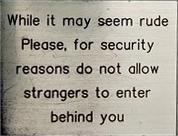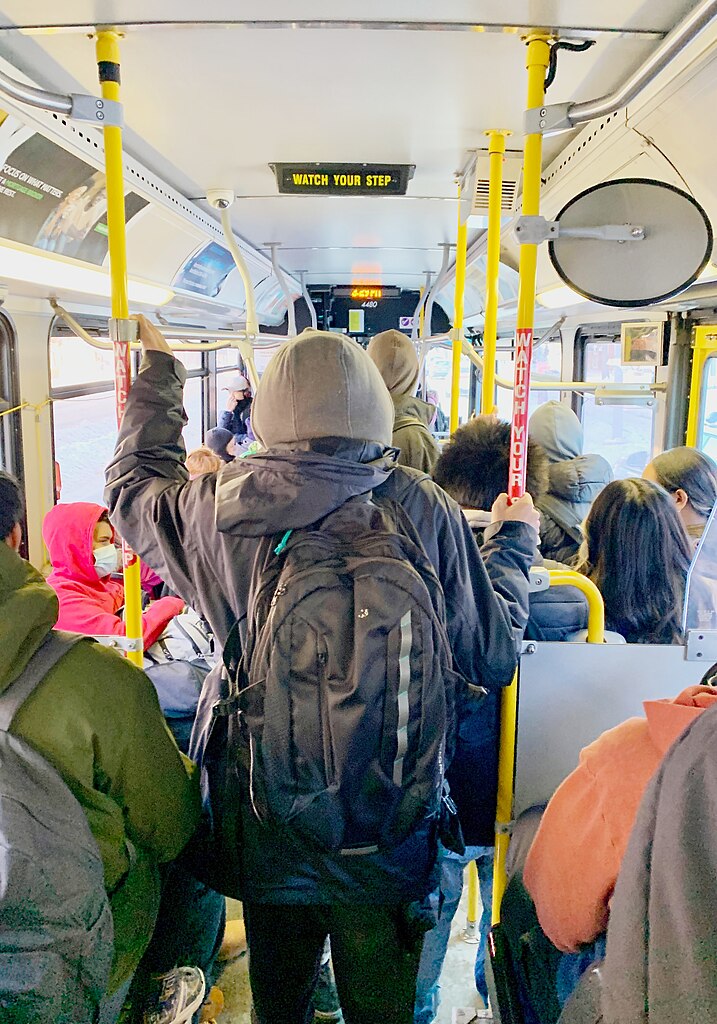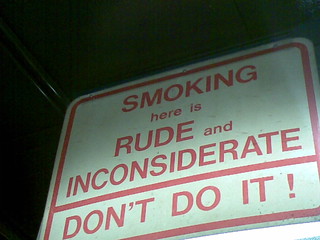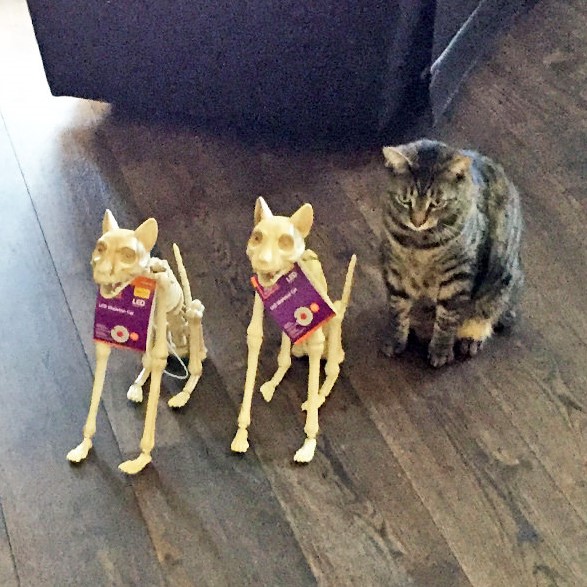I think the best of people, always—until proven wrong. Maybe that’s why I believe that virtually all rudeness is unintended. If I’m right, why do so many people, so often, behave rudely?
Rudeness can take many forms. It is generally defined as a display of disrespect, a breaking of social norms or expectations, a breach of etiquette, or ignoring “accepted” behavior. It can also mean someone behaving inconsiderately or aggressively.
People are not always aware of how their words or actions are perceived by others, and they may not intend to be rude.
THE DIMENSIONS OF RUDE
As with any other behavior, there are two dimensions to rudeness: intentional or unintentional, acts of omission and commission. In this blog, I’m dealing with unintentional acts of commission or omission.
By that I mean unintentional rudeness caused by something you did and rudeness resulting from something you failed to do. Either way, you didn’t mean to offend anyone, but offend them you did. It’s the perception of the other person that determines whether a statement or action is rude.
ACTING RUDELY (COMMISSION)
People like to feel that they matter. When they tell a story, or have a conversation, they like to feel that you care about it, and you’re interested in it. Most offense comes when you don’t show interest in their lives, or don’t show interest in what they’re saying.
- Interrupting in the middle of their stories
- Showing visible signs of boredom or distraction
- Abruptly changing the subject
- Finishing someone else’s story when talking to a third person
- Making a joke or interjecting your own comments
- Finishing someone else’s sentences
- Otherwise drawing attention to yourself and away from the speaker
- Walking away while the other person is still talking
- Scanning the room when you are supposed to be listening
- Checking your cell phone or smart watch (no matter how surreptitious you think you’re being)
- Actually taking a call when you are supposed to be playing bridge, participating in a book discussion, or whatever
Then there are occasions when you are rude by inattention, like getting into a checkout line without noticing that someone else was in line a step or two back.
Perhaps you’ve taken a seat where someone else was sitting when that person intended to resume the seat.
Consider a time when you had a cold, allergies, or similar symptoms. You coughed, sneezed, etc. You may have wanted to be friendly by shaking hands when leaving, but offering a germy hand is actually rude.
Avoid Being Rude by Commission
Many people behave these ways. To avoid being seen as rude, at least act like you care. Listen to people. Let them speak. Act like you care about what they’re saying. Give them positive feedback, like a smile, or nodding your head. This may seem fake, but it is social intelligence, which separates popular people from unpopular people. Popular people often understand how to make other people feel good, and most of all, they care enough to do it
RUDE BY OMISSION
Your cell phone rings at an inappropriate time—e.g., during a play, concert, lecture, because you failed to turn it off. You didn’t intend to be disruptive, but unintentional rudeness is still rudeness. And, unfortunately, it is very easy to commit.
Not responding promptly to an e-mail, text, or voice message. This kind of passivity is rude! (Note: promptness is a social construct and can vary widely. See below.)
Not responding/acknowledging what you consider a distant event but others see otherwise. For example, not sending a card (or check) when your sister’s stepdaughter’s stepson graduates from high school.
Not sending holiday greetings.
Not welcoming/admiring someone’s pet or plant, art or outfit, or the arrival of his/her twelfth great-grandchild.
Avoid Being Rude by Omission

The secret to not being rude by omission again lies in making other people feel like they matter. This can often be as simple as paying attention to what others see as important. If a friend mentions their pet lizard frequently, constantly sends photos of their garden, or voices worries about an upcoming medical appointment, they probably see those things as fairly significant. Acknowledging or asking about something subjectively important goes a long way toward establishing yourself as a polite person.
If someone sends you holiday greetings, send a message in response. If someone has done you a favor, thank them. Keep in mind that, if someone has to remind you about a message they sent or question they asked, perhaps they’re sending you a gentle message that they’d prefer more prompt responses from you.
SOURCES OF UNINTENTIONAL RUDENESS
Many things beyond our control can cause us to be rude unintentionally.
- Mental health issues, such as anxiety
- Substance use/abuse
- Low self-esteem or insecurity
- Lack of social skills
- Being distracted because of:
- Stress
- Pressure
- Frustration
- Any source of unhappiness
- Physical limitations such as low-vision or deafness
- Not considering or understanding the impact of one’s words or behavior, including tone of voice, facial expression, and other such paraverbal “language.”
SUBJECTIVELY UNDERSTOOD RUDENESS
There can be cultural differences to consider as well. For example, in Japan, something as seemingly innocent as laughing with your mouth open is a no-no. In many areas of the Middle East, showing someone the soles of your feet is an insult. So, it’s important to be aware of these possibilities, especially if you are in a culturally diverse situation or setting.
And then there are sub-cultural differences. For example, among ladies of a certain age and upbringing, not sending hand-written thank-you notes is rude. But among teens or college students, a text saying “Thanks a bunch” is likely considered acceptable and sufficient.
Other behaviors particularly prone to sub-cultural differences or expectations include:
- Arriving late, and how late
- Cursing
- Slurping food
- Wearing clothes that are inappropriate or offensive
- Taking a call
- Expressing religious or political opinions
- Talking about finances
- Interrupting
- Directly criticizing someone else’s appearance
- Finishing or not finishing food on your plate
- Accepting or not accepting displays of hospitality
- Talking about health/illness
- Smoking
- Talking about people who aren’t present
The best way to avoid being unintentionally rude is observing the current situation and picking up on social cues.
DEALING WITH RUDE PEOPLE
When trying to decrease rudeness around you, start by being a good role model. Don’t ignore it, because it won’t go away. Deal directly (but privately) with the culprit, perhaps by asking what the person intended; then follow-up with “When you xxx, it makes others feel yyy.”
Whether to apologize after realizing you’ve been rude is a personal decision. Depending on the seriousness of the offense, the relationship,
- You can try moving on, ignoring the offense but making efforts not to repeat it.
- You may need to acknowledge the offense with a simple, “Sorry; I’ll try to do better in the future.”
- For a more serious offense, you may need to offer a written mea culpa, with or without a peace token.
However, if you’re dealing with petty people, people who take offense just for the sake of being offended, don’t reward that behavior!
HOW TO STOP BEING UNINTENTIONALLY RUDE
If you frequently feel you’ve been rude—or people have told you you are—and it is truly unintentional, consider whether there is a pattern to your rudeness.
- Does it typically happen around particular people or family members?
- Are particular topics the trigger?
- Is it job related?
- Have you had enough sleep?
- Are you rude when you already feel angry or hungry or irritable?
Finding patterns may help you find a root cause and deal with it.
In addition, my advice would be to be present. Pay attention to people and what they are saying. Look for social or situational cues. Avoid simultaneously trying to solve some other problem on your mind.
Finally, assume other peoples’ rudeness is unintentional and don’t take offense if you can manage that.
INTENTIONAL RUDENESS
This isn’t something I’ve taken up here. But in my opinion, those behaviors might better go by a different name. “Rudeness” can be a way to display power within a family, social or work setting. Or it could be an attempt to get your own way on something. Or maybe you could be trying simply to provoke a reaction.
This is closely related to bullying.
Then there is “mean” behavior which aims to hurt or deprecate someone.
Alternatively, being deliberately offensive can be a way of discouraging future interactions.
Bottom Line: Rudeness is everywhere. In my opinion, it’s usually unintentional. My rule of thumb: If small children do not die, it isn’t really important. Chill.









